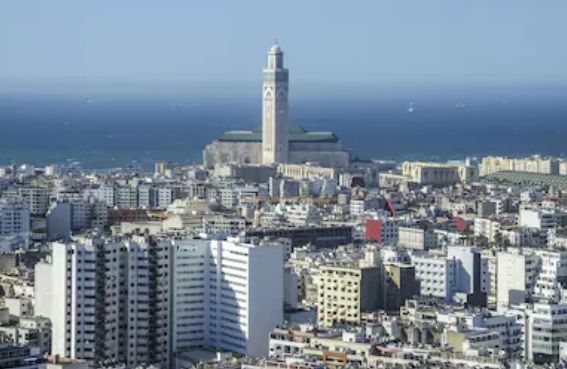Bloomberg
Souhail Karam
Morocco plans to tap the international bond market next year, as North Africa’s only investment grade issuer moves to boost economic growth, curb spending and liberalize its foreign-exchange regime.
The timing and the size of the issue will be determined by the Finance Ministry, central bank Governor Abdellatif Jouahri told reporters late on Tuesday. Once the budget bill is drafted, the finance minister “will be better positioned to determine the amount he will need.”
The issuance is expected to be for at least $1 billion and to take place in the first half of the year, a person with knowledge of the matter said, declining to be identified because the information was private. Central bank and Finance Ministry officials, respectively, declined comment or didn’t immediately return calls.
Morocco has avoided the major unrest that rattled neighbors Tunisia and Egypt after the 2011 Arab Spring uprisings but has faced recent protests over high youth unemployment and rising costs. The government is struggling to find the right policy mix at a time when it wants to lift subsidies, channel the savings to Morocco’s under-developed regions, and gradually liberalize its currency.
In January, it widened the band in which the dirham can fluctuate to 2.5 percent up and down from 0.6 percent earlier. The measure led to a minimal fluctuation in the exchange rate, but authorities said it was part of a broader plan to boost growth by making the economy more resistant to external shocks.
The international bond issuance would be Morocco’s first sovereign bond sale since 2014.
IMF Line
Jouahri said external public debt was expected to rise to 14.6 percent of gross domestic product in 2019 compared to 13.8 percent of GDP this year.
With questions over the willingness of the kingdom’s Gulf Arab backers to renew a multi-billion dollar aid package that expires this year, Jouahri said Morocco could seek to revive a liquidity line with the International Monetary Fund should oil prices threaten the economy.
The government in January decided against renewing a $3.47 billion liquidity line it had secured in 2016, saying it may seek alternative arrangements with the fund.
(Updates with details on bond issuance in third paragraph.)







